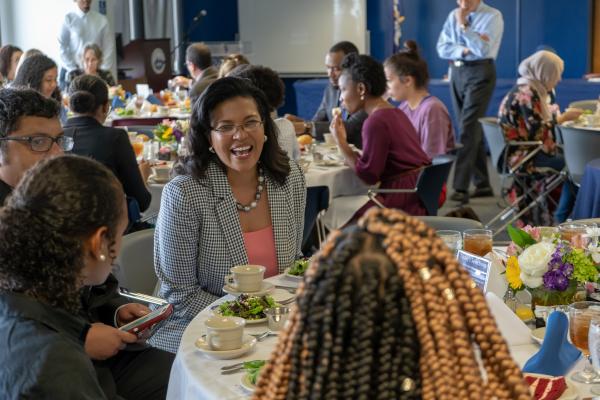From combating homesickness to navigating unfamiliar academic schedules to feelings of inadequacy, a panel of faculty and staff at the University of New Orleans shared how they pushed through the hurdles to gain professional success despite being the first in their families to attend college.
The panel members say multiple factors helped them through their early difficulties: finding good mentors, bonding with other students, wanting to set an example for other family members and holding tightly to their goals and dreams.
“I was terrified of wasting their money,” psychology professor Laura Scaramella said referring to her parents. “I just didn’t want to let them down.”
Commissioner of Higher Education Kim Hunter Reed was at the University of New Orleans on Friday to facilitate the panel discussion during a luncheon with current first-generation students.
Reed has designated Monday as First Generation Day in Louisiana to honor students who are the first in their family to attend college.
At UNO, 41 percent of the University’s undergraduates are first-generation college students, President John Nicklow told the group.
“Administrators, faculty and staff at this institution are motivated by the knowledge that the work that we do can drastically impact the trajectory of a student’s life, as well as the lives of their family members,” Nicklow said. “For decades, we have provided a pathway to a better life for many of our students.”
The purpose of the UNO panel and the social media blitz underway today, Reed said, is to let first-generation students know they are not alone.
“Our commitment is that you complete what you start, that you feel welcome,” she said. “To let you know that we believe in your potential and that we’re here to support you.”
Scaramella was joined on the panel by Norma Jean Mattei, interim dean of the College of Engineering; education professor Patricia Austin; and Tresa Banks-Lewis, associate director of the Ronald E. McNair Post-Baccalaureate Achievement Program at UNO.
They advised students not to be afraid to ask for help, to seek out mentors and talk with their professors about the pressures they face inside and outside of the classroom.
While they cautioned students about not allowing negative advice to tamp down their dreams, Banks-Lewis said good mentors are invaluable for students.
“Not only to believe in them, but also to tell them the hard honest truth,” she said.





